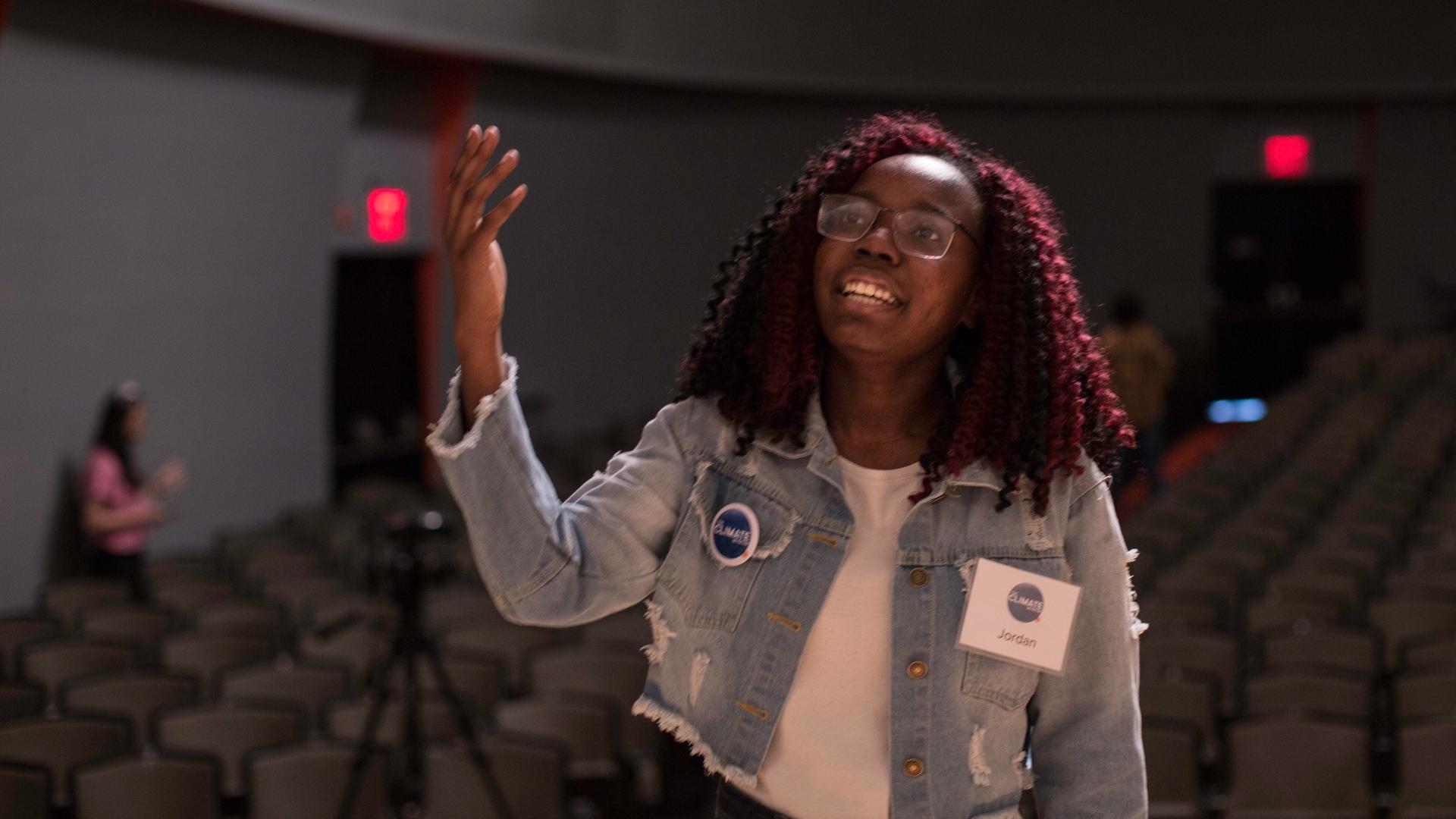Global network of young people writes poems to cope with climate crisis
Some people might find it naïve to talk about poetry as a climate solution, but the arts represent one of the more powerful ways that people transform deeply held worldviews and beliefs about the natural world, according to Julia Bentz, who runs the project Art for Adaptation, which looks at the relationship between the arts and climate change.
“The natural sciences alone are not capable of fully addressing the challenges that we’re facing in this time,” she said.
Related: Can direct air capture make a real impact on climate change?
Access to art and poetry, said Bentz, can change the way someone thinks about nature, which can be quite compelling and promote thinking about transformational change in our society.
“I think we really need new narratives and new metaphors that are inspiring. And I think poetry can be a very powerful tool in that on that journey.”
“I think we really need new narratives and new metaphors that are inspiring,” she said. “And I think poetry can be a very powerful tool in that on that journey.”
In the last 10 years, there’s been a surge of literature about climate change, including poetry, according to Adeline Johns-Putra, a literary scholar at the University of Surrey in England. She said because climate change is such an overwhelming problem, poetry can be a perfect way to confront complex feelings about it.
“Really good poetry draws you in and then it stops and makes you think,” said Johns-Putra. “And that ethical power is important in a time of climate change, you know, thinking and feeling together as we’re taking in all of this information about what’s going on.”
Johns-Putra said the act of writing a poem can help people cope with the emotional weight of climate change, particularly young people.
“There is a therapeutic aspect to it, to writing poetry and sharing it. here is a working through the trauma. And that’s important, too.”
“There is a therapeutic aspect to it, to writing poetry and sharing it,” she said. “There is a working through the trauma. And that’s important, too.”
Related: A global push for racial justice in the climate movement
Young poets tackle climate crisis
The World is partnering with an educational organization called Write the World that hosts a global community of young people who write about the world around them. The World’s climate solutions segment The Big Fix is featuring some of these young poets and their words.
The first poet in our series is 18-year-old Vani Dadoo from Mumbai, India.
Bianca Nwokeji, 20, a student of Medical Lab Science at the University of Nigeria, Nsukka, has an enormous passion for writing. She says she hopes to make a world impact through the written word and philanthropy. Her poem titled “Soul Treatment” is below.
Caroline Dinh, 16, calls herself a professional hobbyist who is always trying out new things. Caroline, who lives in Rockville, Maryland, is a writer, an artist and a programmer. She hopes to express her experiences through writing. Her poem is titled “infinity (collapsed).”
Neeraja Kumar, 15, is a prolific writer who draws inspiration from the biodiversity of her native country, India. She writes about ways people can think differently about their relationship with nature. Neeraja is a student currently living in Dubai. This is her poem “Himalayas in Jalandhar.”
Shanti Mathias has lived in India and in New Zealand where she lives now in the capital, Wellington. Mathias, 20, but wrote this poem when she was 18, goes running almost daily and loves connecting with nature while she does it. She says she writes to process her complex feelings about the environment and the unfairness of ecological degradation.
This series was produced by Anna Kusmer with sound design by Uzair Ahmed. Videos by Maria Elena Romero.
